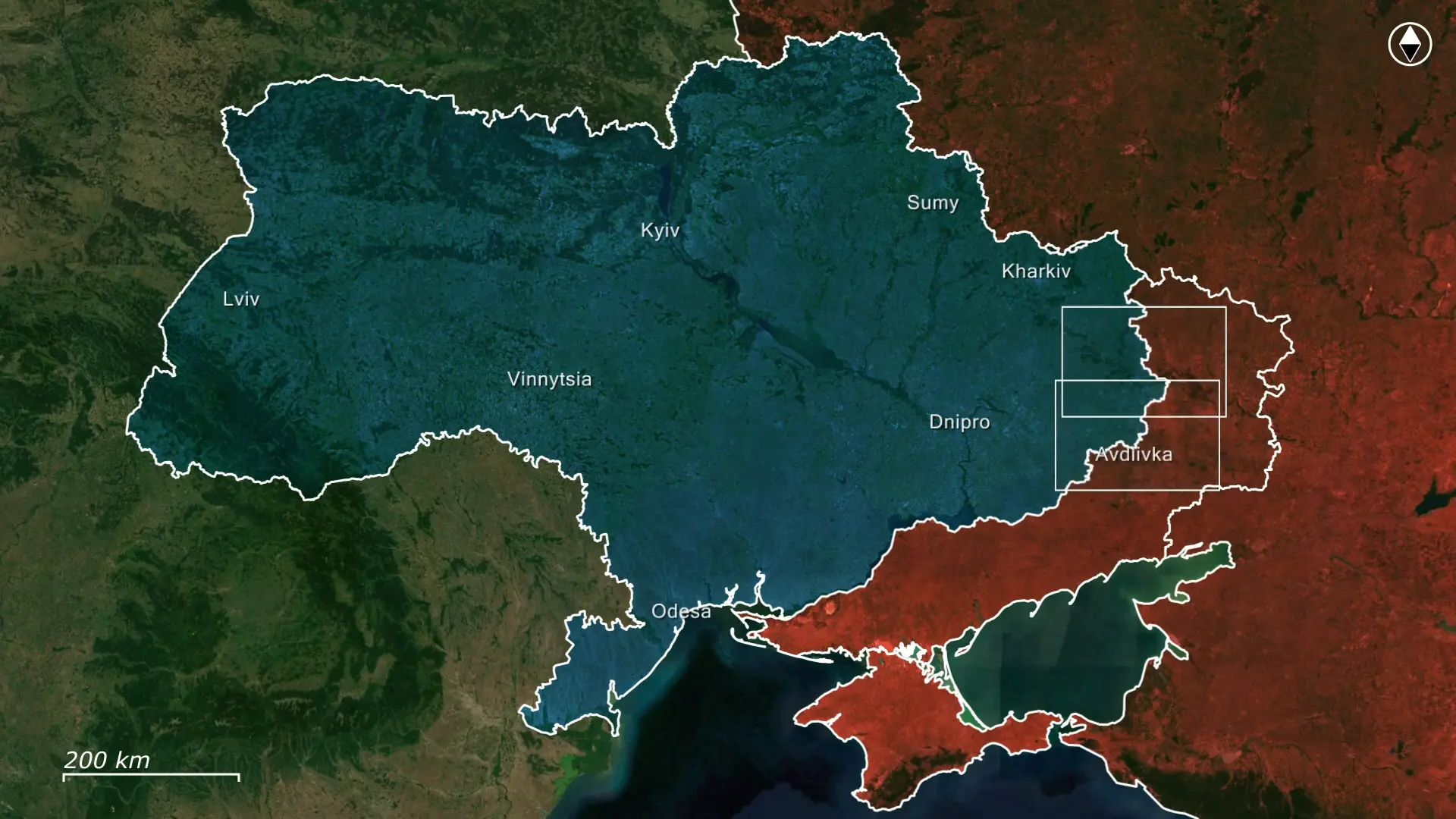Here, Russians continued the 3rd wave of their counteroffensive, trying to overcome Ukrainian defenses with a new tactical approach. Despite disastrous results, Russian commanders stubbornly refused to change their tactics, leading to many Russian marines finding a watery grave.

The main Russian goal in this stage of their counteroffensive is to penetrate the Ukrainian defenses in a pincer maneuver, and take the northern front of the Ukrainian incursion into a pocket. Recently, Russians decided to double down on their assaults on Novoivanovka, assuming they were on the brink of collapsing Ukrainian lines. This time, Russians tried to use a different tactic, assaulting the settlement head-on from the east to distract Ukrainians, while launching a flanking attack from the south. A small river runs south of Novoivanovka, with only one bridge that Russians must cross to enter the town from the south. Unfortunately for Russians, Ukrainians were prepared, holding an all-round defense in the settlement, and the Russian flanking attacks being exposed to more Ukrainian fire from the south as they tried to cross the river.

Ukrainians shared geolocated footage of one of these assaults, as the Russian column started hitting landmines as soon as they left the town of Liubimovka. As they crossed into the southern fields, many Russian vehicles were hit and caught fire. At the same time, the infantry prematurely dismounted in a desperate attempt to reach the safety of the forest. Only one of the six Russian vehicles managed to enter the settlement in the end, but was ambushed and disabled by a Ukrainian anti-tank weapon, whereafter Ukrainians quickly finished off the scattered Russian infantry.

Despite the Russian attack failing, and Ukrainians now knowing the Russian plan of attack, Russian commanders ordered another five waves of mechanized assaults in the same way as before. Expectedly, these attacks ended even worse for Russian forces, as Ukrainians now knew the exact Russian plan of attack, along with Russians not changing their tactics in the slightest. Ukrainians continued to share geolocated footage of them repulsing the Russian frontal and flanking assaults, showing many burning Russian armored personnel carriers failing to cross the river. Released footage of the aftermath of the Russian assaults at the river crossing shows that the Russian marines of the 810th Naval Infantry Brigade suffered heavy casualties in their attempted flanking maneuver. The footage grimly shows the river banks and the reeds being littered with dead Russian soldiers and destroyed armored vehicles.
Ukrainian soldiers active in the region state that the activity of Russian forces in the Kursk direction remains steady. They add that Russians regularly deploy armored vehicles along their main attack vectors, which get destroyed before they can achieve any significant breakthrough. The Institute for the Study of War reports that the Russian military frequently transfers new reserves to the Kursk region to replace high personnel and equipment losses.

Overall, Ukrainian units have even described their defensive situation as stable, despite defending against the 3rd wave of the Russian counteroffensive and coming under near-constant Russian assault. Thanks to frequent rotations, Ukrainian soldiers in the Kursk region remain well-rested and more able to leverage their superior training and equipment to achieve tactical victories on the battlefield. This allows Ukrainians to quickly adapt to the constantly changing situation, and effectively respond to new Russian tactics. As Russian losses rapidly mount and their progress stalls, Russians are quickly depleting their more elite assault units, further diminishing their prospects of breaking through Ukrainian lines.








.jpg)








Comments